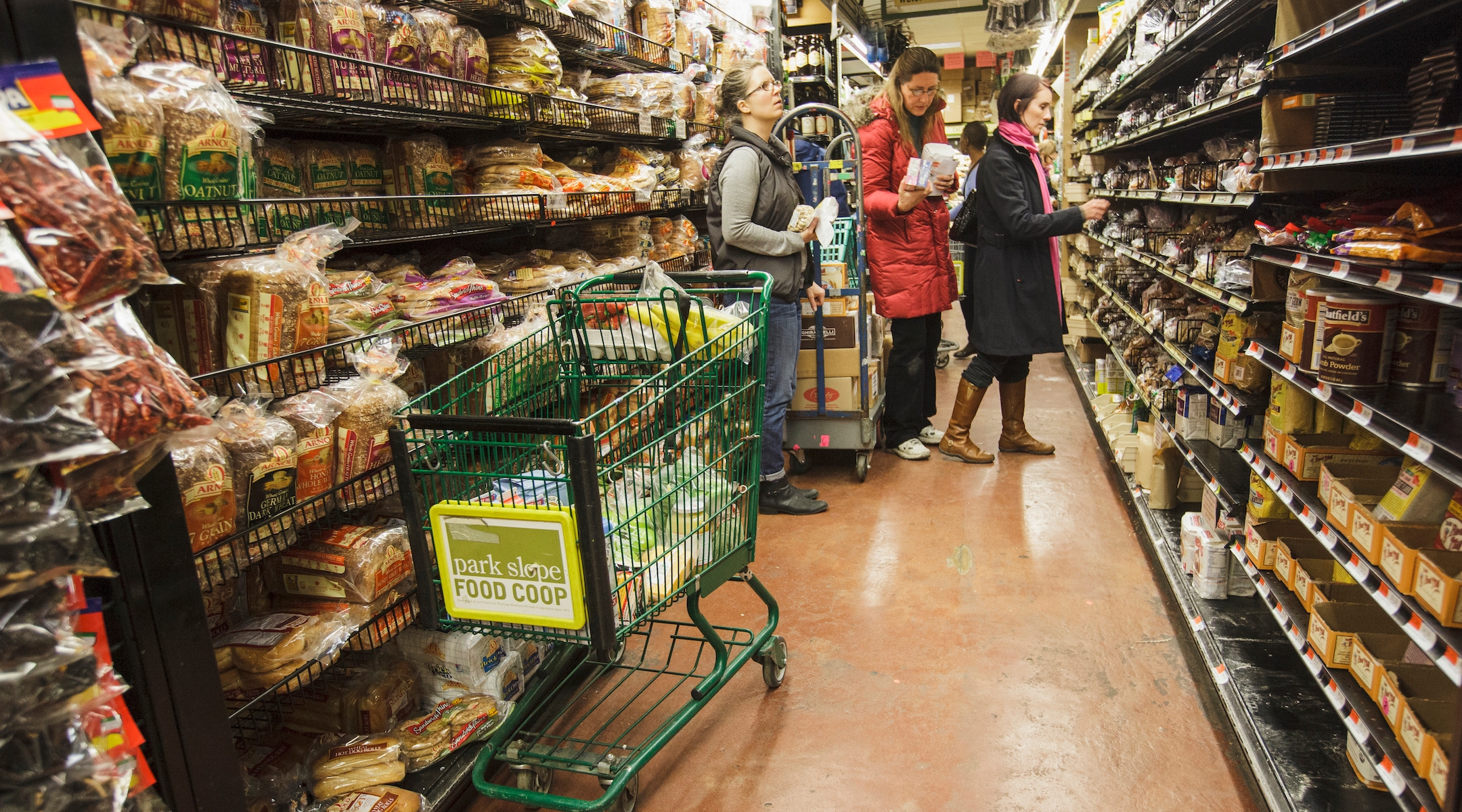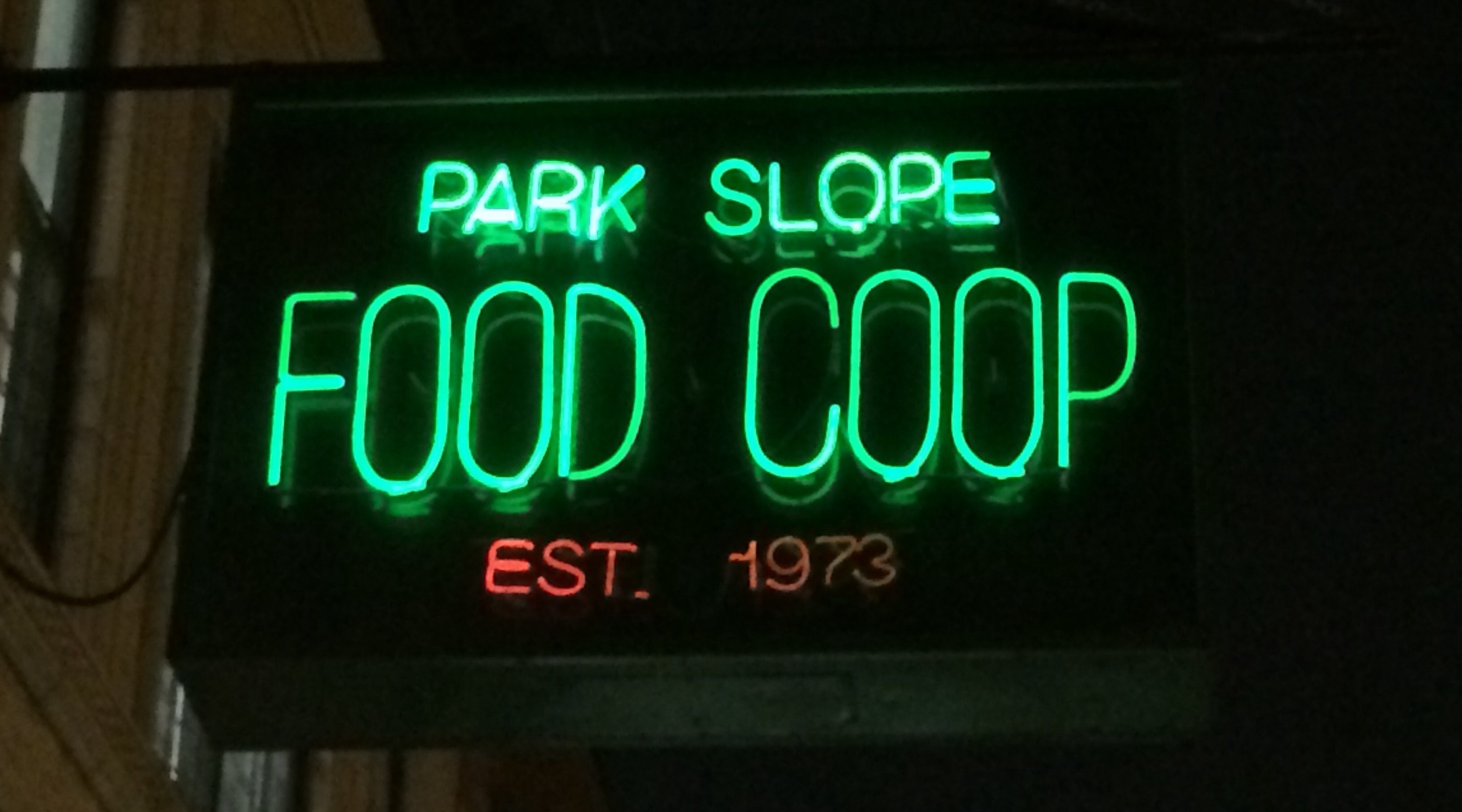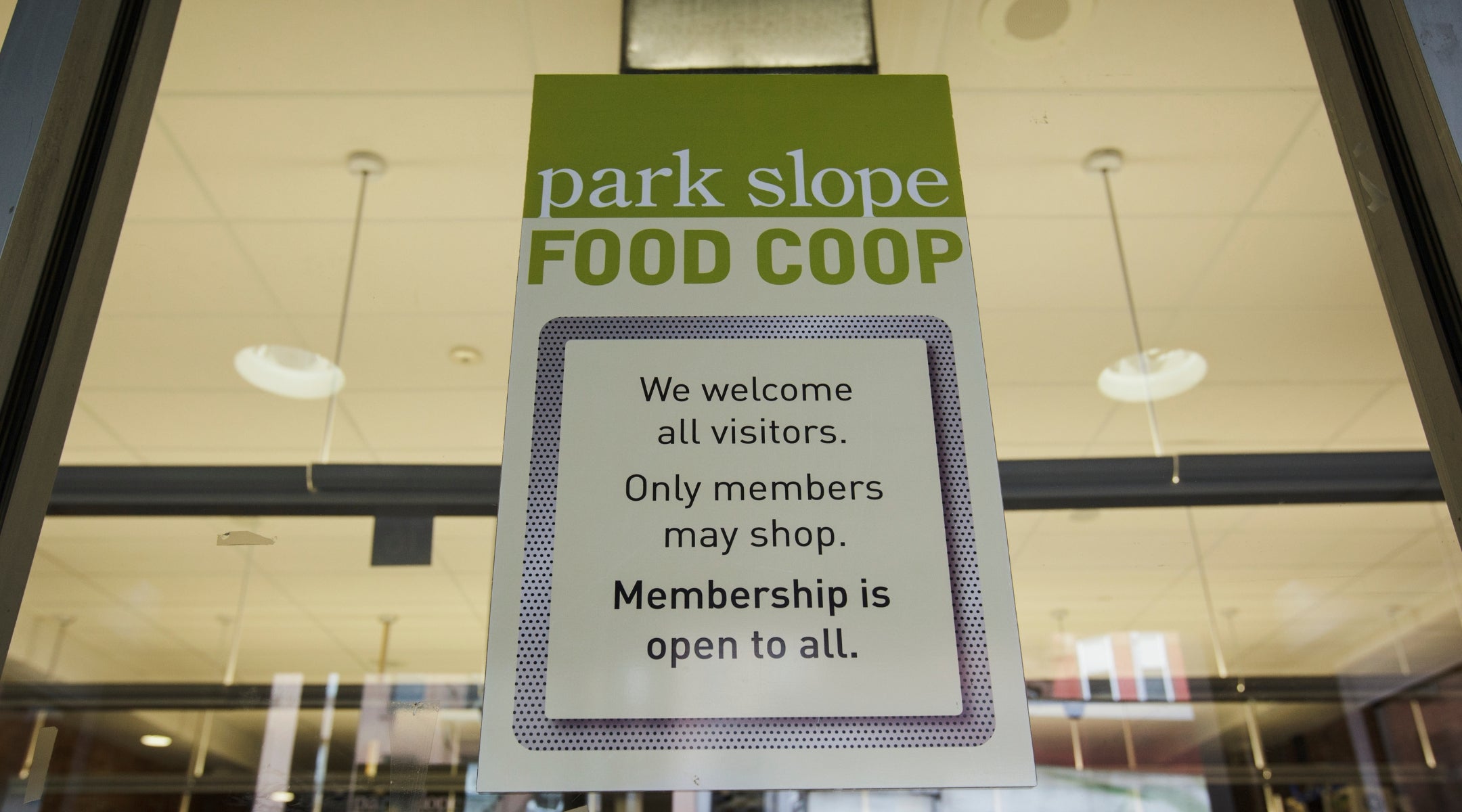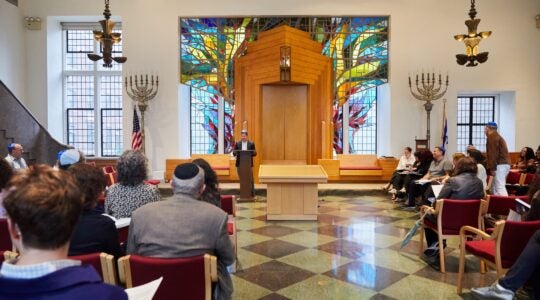A contentious election that is consequential to the local Jewish community is taking place Tuesday in New York City — and it’s not the Democratic mayoral primary, which is also that day.
Tuesday’s board election at Park Slope Food Coop may shape the future of how the 52-year-old cooperatively-run grocery store in Brooklyn makes decisions for its 17,000-plus members — and whether or not that future includes a boycott of Israeli products.
The election will include a vote for two seats on the five-seat board of directors, which has the authority to ratify certain rules, as well as a vote on whether to change a rule that would allow for general meetings to take place in a hybrid manner — simultaneously in-person and over Zoom — as they did during the COVID-19 pandemic.
Among the parties invested in the election are PSFC Members for Palestine, a group of coop members founded in the wake of Oct. 7, 2023, whose mission is to organize a boycott campaign “in solidarity with Palestine.” The group, which is running two candidates for the two available seats on the five-person board, claims some 3,000-plus members and uses the tagline “No Co-operation With Occupation.”
The group is also campaigning for members to vote in favor of the hybrid meeting model, which they believe would allow for more people to participate in general meetings. The idea is that, with more general meeting participation, it would then be easier to lower the coop’s boycott threshold from the currently required supermajority of 75% to a simple majority of 51%.
Meanwhile, a competing activist group, the pro-Israel group Coop4Unity, which was founded in 2024 to prevent an Israeli boycott from passing at the co-op, said in a statement posted to their website on June 6 that there are “good reasons” for in-person meetings.
“We just don’t think that doing a hybrid meeting only, and moving towards a hybrid meeting with the sole goal of creating a boycott makes a lot of sense,” Ramon Maislen, a Jewish co-op member and member of Coop4Unity said. “Because you’re changing the character and the makeup of how the coop has been run for 50-plus years, or however many years it’s been, simply in order to enact a boycott, which is, in and of itself, very contentious.”

Members shop at the Park Slope Food Coop in Brooklyn. Formed in 1973, the Coop is one of the oldest and largest food cooperatives in America. (James Leynse/Corbis via Getty Images)
The vote over hybrid meetings marks a turning point at Park Slope Food Coop, which, given its size and location in uber-hip and liberal Brownstone Brooklyn, has long been seen as the vanguard of the cooperative grocery movement. Since the Israel-Hamas war began on Oct. 7, 2023, the coop has been torn apart by internal debates about whether a boycott of Israeli goods represents a much-needed humanitarian stand, or whether or not such a boycott is antisemitic by nature. There have been text-message campaigns, social media posts, canvassing efforts and pieces in the coop’s official newsletter, The Linewaiters’ Gazette, and in The Olive Press, a zine published by PSFC Members for Palestine
The coop is hardly the only progressive space in New York to be riven by fights over the Gaza war and how to respond. But to many observers and members, this one feels different — if only because “cooperative” is literally part of the PSFC name. Unlike a regular grocery store, the coop is owned and staffed by its members, and its policies are discussed at monthly general meetings, put up for discussion with committees and, eventually, brought to a membership-wide vote.
But now, with its members set to finalize the vote on adopting the hybrid-meeting model at Tuesday’s annual membership meeting, the Park Slope Food Coop may find itself one step closer to instituting — or rejecting — a boycott of Israeli goods.
Crown Heights resident Rose Ettleson, 28, who is Jewish, has been a member of the coop since April 2024. Though she is not affiliated with Coop4Unity, she has already cast her vote in alignment with the candidates endorsed by the group, and has voted “no” on hybrid meetings.
“I just don’t support the BDS [Boycott, Divestment and Sanctions] movement in general, so I definitely want to keep it out of the grocery store,” Ettleson said. “It has no place in the grocery store.”
Adding to the tensions is an email sent June 4 by Joe Holtz, the coop’s co-founder, first-ever paid employee and a current board member, who is retiring later this month after more than 50 years of involvement. Holtz encouraged all PSFC members to vote against Members for Palestine board candidates Dan Kaminsky and Taylor Pate, citing multiple coop principles, including its commitment to autonomy and against discrimination.
“Any group that thinks the Coop should join a boycott should go out and win the necessary support from the overwhelming majority of members,” Holtz wrote in his June 4 email. “A group should not try to take shortcuts or push their agenda without the needed level of support, or by fabricating emergencies in the name of ‘democracy.’”
Holtz, who is also currently employed as the coop’s general manager, added in his email that the only Israeli product recently carried in the store is one type of bell pepper, which is only sold in the winter and therefore not currently on shelves.
Holtz could not be reached for comment.
The brouhaha over Tuesday’s election is hardly the Park Slope Food Coop’s brush with controversy, nor is it the coop’s first BDS-related showdown. Activists tried instituting an Israel boycott in 2012, even gaining the attention of then-mayor Michael Bloomberg. The vote ultimately failed.
In 2016, the coop voted to change how many votes are required to vote on a boycott, shifting from the simple majority to a supermajority, in response to an attempt at boycotting SodaStream, the at-home soda making machine, which until 2015, had its main manufacturing plant in the Israeli settlement of Ma’ale Adumim. (Supporters of the company cited the collaborative nature between Israeli and Palestinian employees as a peace-building effort.)
The Park Slope Food Coop has taken political stances on selling certain country’s products before, including boycotting Chilean products in 1973 in response to the regime of dictator Augusto Pinochet, and a decades-long boycott of South African products during the apartheid regime.
PSFC Members for Palestine did not respond to a request for comment.
“We care about (we demand!) food justice from Brooklyn to Gaza,” PSFC Members for Gaza wrote in the first issue of their zine in May 2024.
“We embrace practical efforts to make Coop governance more accessible to the vast majority of members, for instance by adopting a hybrid meeting format to serve those who can’t attend in-person GMs due to time constraints, childcare demands, or accessibility issues,” the group added. “Having understood that U.S. government support for the Zionist program means that Palestine is the direct responsibility of people in Brooklyn, we redouble our resolve to make sure that our Coop steps up to do its part.”
On Oct. 7, 2024, on the anniversary of Hamas’ invasion of Israel, Maislen and a group of Jewish co-op members associated with Coop4Unity filed a state human rights complaint alleging antisemitic and anti-Israel harassment that have contributed to a “toxic work environment,” Maislen, who filed the complaint, said at the time.

A sign at the Park Slope Food Coop. (Keith Getter/Getty Images)
Maislen declined to explain where the legal complaint currently stands beyond that his lawyer and the coop’s lawyers have been in a “back-and-forth” discussion.
In late May, Rep. Ritchie Torres demanded an investigation into the allegations of antisemitic and anti-Israel harassment at the coop, stemming from Maislen’s complaint.
“The Adams administration is committed to enforcing the law and taking action to protect the rights of Jewish New Yorkers,” a representative for New York City Mayor Eric Adams said in a written statement. “The New York City Commission on Human Rights (CCHR) has responded to Representative Richie Torres’ letter. As the congressman should know, CCHR cannot confirm nor comment on ongoing investigations, as disclosure could interfere with law enforcement efforts.”
PSFC Members for Palestine activists say that any accusations of antisemitism are unwarranted. “If there was a boycott, there’s not going to be a sign at the door that says, ‘Anyone who wants Israeli products is a bad person, and you can’t come in here, and we’ll be discriminating against you,’” organizer Alyce Barr, who is Jewish, told Hell Gate. “They would like everyone to believe that we are hooked up with some international cartel, and nothing could be further from the truth. We’re just trying to get our co-op to live its values.”
In the weeks leading up to the election, the vibe at the co-op has been relatively calm, said Ettleson, who shops there about every two weeks. Last year’s board of directors election, in which Maislen and another Coop4Unity member, Sondra Shaievitz, ran unsuccessfully for two board seats, was far more contentious, she said.
“Every time you would leave the store, there would be people canvassing outside, and there would be the pro groups and the anti- groups,” Ettleson said.
Nonetheless, Maislen said he is feeling pessimistic about Tuesday’s results.
“I’ve been very disappointed with humanity over the last two years,” he said.
The New York Jewish Week brings you the stories behind the headlines, keeping you connected to Jewish life in New York. Help sustain the reporting you trust by donating today.





